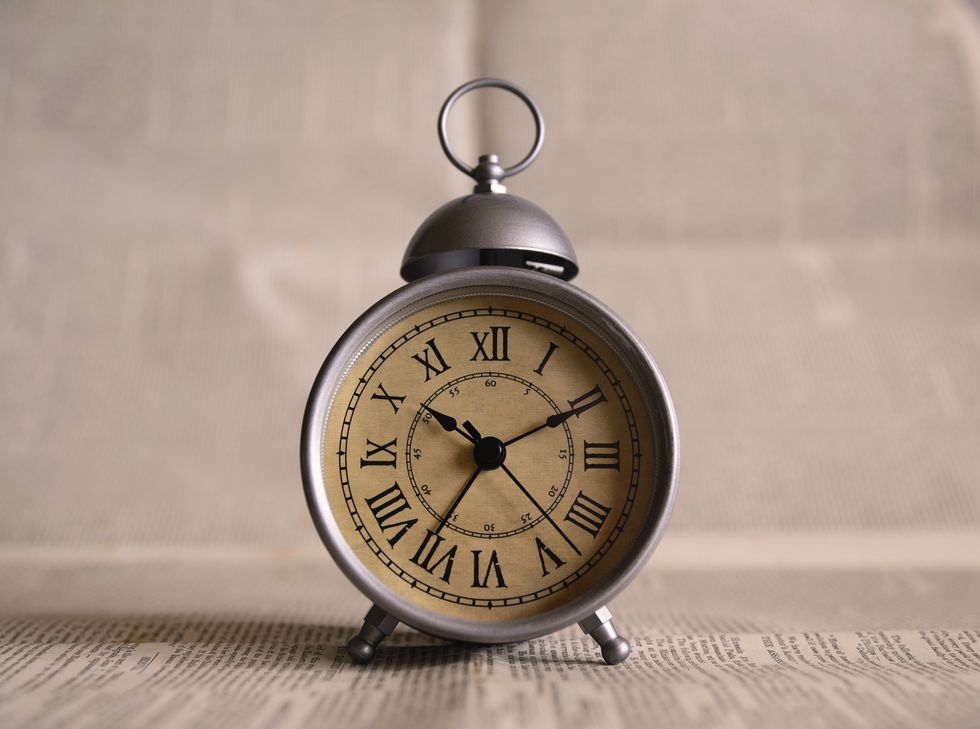We all need a little inspiration sometimes. Many of us find this in our favorite songs, books, or even through friends. Others like to read poems -- if you're one of those people, this is for you. And if you're not, you can still stand to benefit from these classic poems. Poetry can be powerful, and the following list proves just that.
"Still I Rise" by Maya Angelou

https://unsplash.com/photos/EAvS-4KnGrk
You may shoot me with your words,
You may cut me with your eyes,
You may kill me with your hatefulness,
But still, like air, I rise.
"Still I Rise," published in 1978, is written like a love letter to one's self. With a combination of simile and rhyme, Maya Angelou describes her determination to rise above whatever obstacles are thrown her way, a determination that is consistent just as much as it is challenged. Despite the criticism she receives, she remains confident in herself: "'Cause I walk like I've got oil wells/ Pumping in my living room." The positive messages of self-love and persistence conveyed through "Still I Rise" are crucial for everyone to hear now and then, but especially when we're facing difficult times.
"If" by Rudyard Kipling

https://unsplash.com/photos/WtllOYrN70E
If you can fill the unforgiving minute
With sixty seconds' worth of distance run,
Yours is the Earth and everything that's in it,
And - which is more - you'll be a Man, my son!
This famous poem, written by Rudyard Kipling in the early twentieth century, is considered a favorite by many. All four stanzas describe different hypothetical situations -- "If you can make one heap of all your winnings / And risk it on one turn of pitch-and-toss," -- and the positive responses that we strive for -- "And lose, and start again at your beginnings / And never breathe a word about your loss." The poem centers around one idea: if you can deal with the worst of the worst, and still come out unbattered, you are superior to everything and anything that may confront you. "If" forces you to put challenges into perspective, which is a beyond valuable way to get over them.
"A Psalm of Life" by Henry Wadsworth Longfellow

https://unsplash.com/photos/ZMZHcvIVgbg
Trust no Future, howe'er pleasant!
Let the dead Past bury its dead!
Act,—act in the living Present!
Heart within, and God o'erhead!
"A Psalm of Life" is the essential optimist's poem. Through a series of stirring exclamations that read a bit like a pep talk, Longfellow communicates the importance of living in the present, putting the past behind, and waking up each day with the intention to make this one better than the last. The poem's enthusiastic tone instills readers with instant motivation, especially when it seems like everything is going wrong. It's the perfect read for when you're unsure about what's coming next: the future may be unpredictable, but we can always control our response to it.
"Hope Is The Thing With Feathers" by Emily Dickinson

https://unsplash.com/photos/XwXGgBPZ9rQ
"Hope" is the thing with feathers -
That perches in the soul -
And sings the tune without the words -
And never stops - at all -
Fun fact about Emily Dickinson: she authored nearly 2,000 poems, and only after her death were they discovered. In this poem, Dickinson uses metaphor to compare the unwavering song of the bird to one's own sense of hope. Like the bird's song, hope is never extinguished, hope is everywhere, and hope doesn't ask for much effort. It reminds us, even on our worst day, that a little hope goes a long way. Everyone faces moments where it seems like all hope is lost, but according to Dickinson, when it comes down to it, this just isn't the case.
"I Am" by Ella Wheeler Wilcox

https://unsplash.com/photos/IBaVuZsJJTo
I know not whence I came,
I know not whither I go;
But the fact stands clear that I am here
In this world of pleasure and woe.
"I Am," another classic poem, delves into the influence we have over the world around us. Wilcox first establishes that we will never understand what we were put here to do, so there's no point in trying to figure it out. Instead of solving this issue, Wilcox suggests that we make the most of it. "Cease wondering why you came – / Stop looking for faults and flaws; / Rise up to-day in your pride and say, / 'I am part of the First Great Cause!" In essence, you have the power to make your life, and the lives of those around you, better or worse. This is the poem to read when your faith in humanity is waning. It tells us that even when everyone around us is caught up in themselves, we can still make a difference acting alone.












